If you’re into construction projects, I don’t have to tell you how chaotic construction projects can be. From chasing down the latest drawing to missing a change order buried in an email thread, to having to explain delays that weren’t in your control, there could be all sorts of problems without the right system in place.
Traditional tools often fall short because they can’t handle the complexity of the construction projects that need on-site and off-site teams to stay in sync. While general project management software can be great for office-based teams, construction projects need dedicated construction project management tools, designed to help teams located at various sites plan, coordinate, and deliver construction projects more efficiently.
They streamline workflows, keep all your documents and drawings in one place, support real-time collaboration, and help with cost control. From the architect to the site foreman, these keep everyone on the same page and reduce delays or costly mistakes.
After thorough research, I’ve found out the following to be the best construction project management platforms.
Construction Project Management Software Comparison
Below is a comparison of the construction project management platforms including their top features, integrations, main focus and a Geekflare rating.
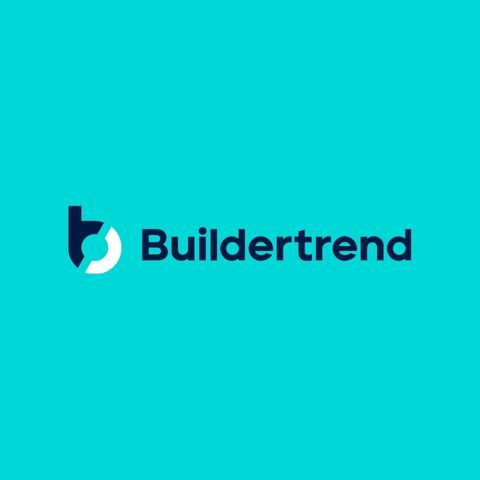 |  |  |  | 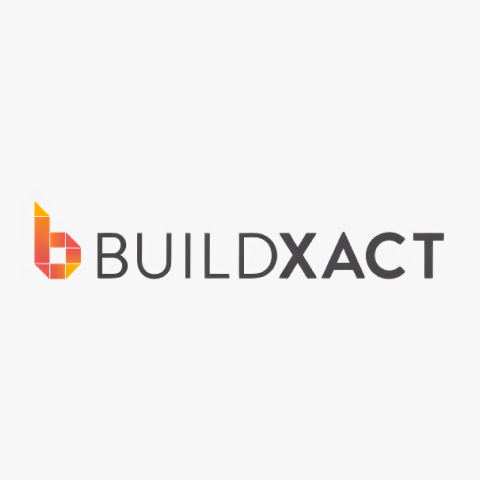 |  | 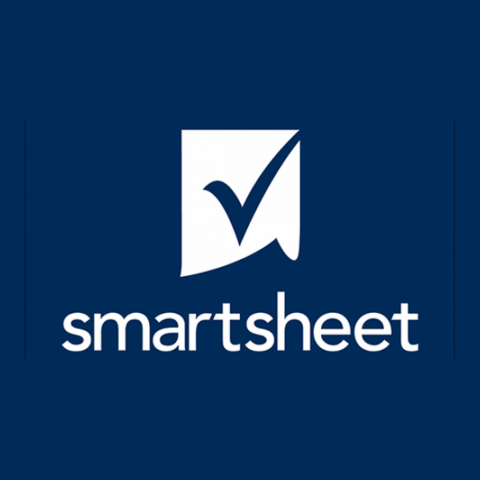 | 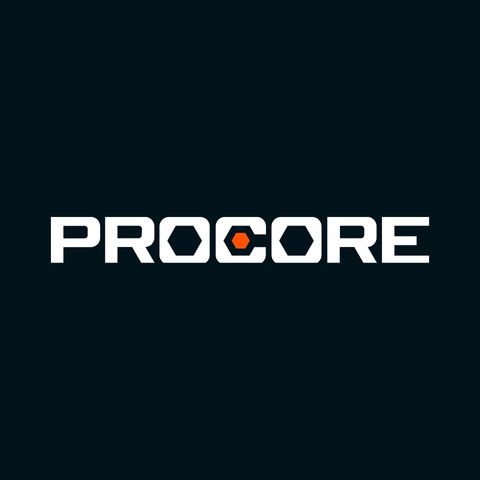 | 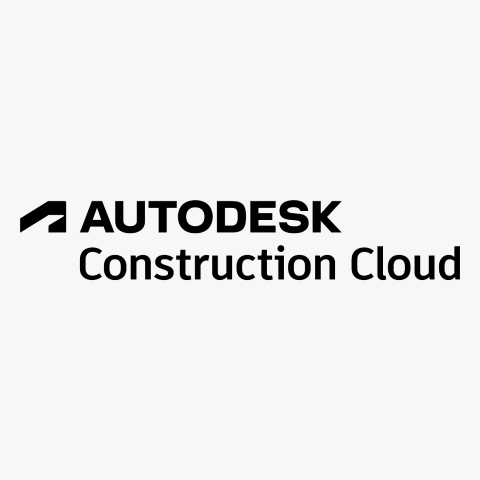 |  | |
Home builders | Contractors | Architects | Residential contractors | Builders | Planners, Contractors | Construction teams | Contractors | General and speciality contractors | Contractors and EPCs | |
Web | Web | Web | Web | Web | Web | Web | Web | Web | Web | |
Cloud | Cloud | Cloud | Cloud | Cloud | Cloud | Cloud | Cloud | Cloud | Cloud | |
Estimates, scheduling, job costing budget | Projects, daily, logs, work orders | Real-time communication, field productivity | Estimation, proposals | Site management, Quoting | Scheduling, Project tracking | Collaboration, Visibility | Resource planning, Quality and safety | Project management, Safety management | Scheduling, Collaboration | |
Outlook, DropBox | QuickBooks, Gusto | Google Calendar, Egnyte | Beacon, SRS, QuickBooks | Xero, QuickBooks | Google Workspace, Dropbox | Procore, Salesforce | Sage, Workday | Asana, Acumatica | Multiple apps via Zapier, Rest API | |
Residential | Residential, Commercial | Commercial, Infrastructure | Residential | Residentials | Construction | Capital construction | Commercial, Residential | Infrastructure, Industrial | Construction, Engineering | |
Custom | $49 | $39 | $79 | $133 | $9 | $9 | Custom | Custom | Custom | |
Geekflare’s editorial team determines ratings based on factors such as key features, ease of use, pricing, and customer support to help you choose the right business software. | ||||||||||
You can trust Geekflare
At Geekflare, trust and transparency are paramount. Our team of experts, with over 185 years of combined experience in business and technology, tests and reviews software, ensuring our ratings and awards are unbiased and reliable. Learn how we test.
Below are the detailed descriptions of these tools that I have categorized into two sections based on their target business size.
Small to Medium Construction Companies / Residential Builders
If you own a small or medium construction company, you can choose from any of the following platforms.
1. Buildertrend
Best for Residential Home Builders
Buildertrend saves 40 hours per week while setting up new projects, and you can also avail yourself of the same benefit by using it for your construction project. This construction software for builders recently acquired CoConstruct to create an expanded platform combining best-in-class features.
One of the features I found particularly useful is the scheduling tool. It’s flexible, letting you view tasks as Gantt charts, lists, or calendars — whatever suits your workflow. Tasks can be linked, color-coded, and tracked in real time, helping you avoid delays before they start.
I really appreciate the Daily Logs software of this platform. Instead of relying on random notes or secondhand updates, these give you a reliable way to track what’s happening on-site. It’s searchable, clear, and helps avoid confusion, especially if there are disputes or safety concerns later.
Task management with To-Do lists and Punch Lists is also a lot smoother. These features enable you to create checklists, add photos with notes, set reminders, save templates, and reuse them across projects.
Its Selections tool helps you walk clients through material and finish choices without constant back-and-forth emails or calls. When it comes to money, the Change Order Management tool is a lifesaver as it keeps all budget changes visible and approved with a few clicks. That means fewer surprises for clients and fewer payment delays for you.
Buildertrend handles time tracking through its mobile-friendly Time Clock that works offline and uses geofencing to automatically log attendance based on location. Lastly, the software covers the often-overlooked Warranty Management aspect of construction projects. It has tools to manage claims, schedule follow-ups, and keep records organized.
However, while Buildertrend is feature-rich, its extensive tool set might come with a learning curve for smaller teams or users new to digital project management.
2. Contractor Foreman
Best Value for Small Contractors
Unlike many tools that charge you per project, Contractor Foreman gives you unlimited project access under one affordable subscription. So, whether you’re running one site or twenty, everything, from estimates, schedules, budgets, to communication, can be managed from one platform.
It comes with core project management tools for daily task management, such as visualizing progress with Kanban boards, keeping financials in check with real-time job costing, and giving your team project-specific permissions. Thanks to a dedicated portal for estimate approval, invoice payments, and daily update tracking, your clients can stay in the loop too.
Contractor Foreman also tackles pre-construction planning with its Opportunity Management feature, which helps you track leads, bids, and notes efficiently. Tools like weather-logged daily reports, integrated Gantt charts with critical path tracking, inspections, and service tickets keep every phase of your project organized and on schedule.
What’s more? If you need accounting support, you can integrate it with leading accounting software to track costs, invoices, and payments seamlessly.
Pricing
Contractor Foreman pricing starts from $49/month. It offers 5 pricing tiers with a 30-day free trial.
- Basic: $49/month
- Standard: $79/month
- Plus: $125/month
- Pro: $166/month
- Unlimited: $249/month
3. Fieldwire
Best for Jobsite Management & Collaboration
If you’re in construction and tired of juggling tasks, plans, and teams with outdated tools, choose Fieldwire. It is built for the field, making it the go-to platform for hands-on construction professionals who need real-time, location-based, and mobile-friendly task management.
Fieldwire can handle real-time task coordination. You can assign work directly from the field, drop pins on plans, and attach notes, photos, or even videos — so your team knows exactly what needs to be done, where, and why.
Fieldwire facilitates fast and focused communication by letting you ping updates and push notifications instantly. Thus, it helps your team make quick decisions, solve problems, and always have the latest plans via their mobile devices.
Need to run punch lists or inspections your way? Fieldwire gives you the freedom to customize tasks with your own names, statuses, and color codes, so you can match your exact workflow. It also handles manpower and cost tracking in a super practical way, enabling subcontractors to log their hours and expenses right after finishing a task.
You get real-time visibility into where the time and money’s going — and if needed, you can make this data collection mandatory to ensure nothing falls through the cracks. If you’ve got project data in Excel, you can use this platform to import thousands of tasks and instantly turn them into visual, trackable items you can assign and prioritize.
Pricing
Fieldwire has a free forever plan, while its pricing tiers start from $39/month.
- Basic: $0
- Pro: $39/user/month
- Business: $59/user/month
- Business Plus: $89/user/month
4. Leap
Best for Estimating & CRM
Leap SalesPro is created for residential construction businesses and contractors who want fast and accurate project estimates.
In my opinion, Leap’s biggest strength is its Good, Better, Best pricing model. It gives homeowners clear options, while you can digitally present tiered pricing on the spot, even if you’re offline — a lifesaver on job sites with poor Wi-Fi.
The software simplifies everyday tasks by letting you create proposals, send contracts, collect signatures, and manage documents in one place.
Leap’s fully customizable CRM is one of the reliable construction CRM solutions. It ensures that your sales and production process fits the way you work. It integrates with your existing tools, from CRMs and imaging apps to financing and supplier platforms.
Pricing
Leap pricing starts from $79/month for a single user account. Its Team plan starts with $298/month.
5. Buildxact
Best for Estimating & Document Management
Buildxact allows small to mid-sized residential builders or remodelers to grow without losing control over estimates, schedules, and project tracking. From start to finish, this user-friendly software can do it all.
Its biggest USP is its ability to quote 5x faster than traditional methods, thanks to its intuitive digital takeoff tool. It only takes a few clicks for you to measure and count materials directly from PDF plans, align them with real-time material costs, and generate sharp, professional quotes.
I personally like its digital takeoff tool that lets you mark up PDF plans, pull accurate material counts, and generate detailed quotes five times faster than the old way. Real-time pricing means no guesswork, and polished quotes help you win more jobs.
Buildxact also makes scheduling simple for you. Its drag-and-drop Gantt chart construction tool lets you map out tasks, see the big picture, and stay on top of budgets all at once. Want to keep your team and the clients in sync? Use it to store and share RFQs, changed orders, and invoices in the cloud.
Buildxact offers built-in cost tracking and integration with tools like QuickBooks and Xero. Moreover, the support team that actually knows construction offers you an added benefit.
Pricing
Buildxact pricing starts from $133/month. It offers 3 subscription tiers.
| Plan | Pricing | Users |
|---|---|---|
| Entry | $133/month | 1 user |
| Pro | $222/month | 2 users |
| Teams | $356/month | 4 users |
6. monday.com
Template-based Project Management Platform
Many of us do not have time to learn a new software from scratch. monday.com saves you from this pain with its template-based project management system. Designed with construction professionals in mind, this visual project tracking software lets you see progress, budgets, and timelines at a glance.
Its customizable templates make setup easy for every stakeholder, from supervisors to subcontractors. I like its mobile app feature that allows field crews to share files, photos, updates, RFIs (request for information), and feedback in real time, even when they are offline.
The platform also acts as a centralized communication and documentation hub for plans, inspection reports, and updates, helping you avoid rework, miscommunication, and costly mistakes.
If you need to track equipment, schedule resources, or manage budgets, monday.com can handle them all. It offers automated reminders, high-level dashboards to give you full control and visibility into your construction project.
Pricing
The pricing for monday.com starts at $9/seat/month. It has 5 plans, including a free forever plan.
- Free: $0
- Basic: $9/seat/month
- Standard: $12/seat/month
- Pro: $19/seat/month
- Enterprise: Custom
7. Smartsheet for Construction
Easy to Use, Sheet-based
Are you tired of keeping tabs on multiple spreadsheets, email threads, and whiteboard notes for your construction project? That’s where Smartsheet steps in to simplify the entire construction lifecycle.
Smartsheet works as a budget tracking software that enables your team to stay on time and on budget by letting you manage schedules, budgets, resources, and documentation. This tool does not require you to have deep technical skills.
For the pre-construction phase, you can scope, plan, and budget with full visibility. During the construction, field teams can flag issues, report safety concerns with mobile QR code scanning, and track progress in real time to stay connected and aligned with office crews. For resource management and punch list execution, you can assign tasks, notify subcontractors, and check off work as it gets done.
For large capital projects that involve accessibility of many stakeholders, the central hub helps everyone with submittals management, RFIs, and budget tracking. Overall, Smartsheet offers the scalability, transparency, and control construction teams need to make smarter decisions and deliver better outcomes.
Pricing
To begin with, Smartsheet for Construction will cost you $9/user/month. Its 4 subscription plans cost as follows.
| Plan | Pricing | Users |
|---|---|---|
| Pro | $9/user/month | 1-10 members |
| Business | $19/user/monthx | 3+ members |
| Enterprise | Custom | 10+ members |
| Advanced Work Management | Custom | Custom |
Medium to Large Construction Businesses
Construction companies that are medium to large in size can choose from the below platforms.
8. Procore
Popular Solution for Mid-Large Construction Companies
Procore offers contractors, project managers, and field teams a central hub where everything and everyone stays in sync. Using this cloud-based, mobile-friendly platform, your team can access real-time updates on plans, schedules, RFIs, submittals, and photos right from the job site.
Here, every comment, update, and revision is tracked and logged. Procore’s centralized communication and document control systems ensure that there’s no need to search through multiple apps or email chains for the drawings or notes you want. From subcontractors to the stakeholders, everyone can view and access the most recent versions of documents, drawings, schedules, and correspondence.
The platform offers a built-in construction project scheduling app and task tracking tools to manage meetings, store site photos, log safety incidents, and even geotag locations. It offers 500+ software integrations, including accounting software for construction.
As per my observation, Procore isn’t just about managing construction. It’s about ensuring your teams communicate better, your work is documented properly, and your projects finish on time and on budget.
9. Autodesk Construction Cloud
Best for Advanced Project Collaboration
Autodesk Construction Cloud brings together your teams, data, and workflows into one unified platform. It offers real-time collaboration tools and a scalable, centralized system for employees working in the field and back at the office.
Using its schedule integration feature, you can bring in timelines directly from Primavera P6, Microsoft Project, or ASTA Powerproject and spare yourself from juggling multiple systems. With cost and scheduling data in one place, you can forecast cash flow more accurately and spot potential delays early.
Here, all emails, RFIs, and issues are tracked and connected to relevant documents or drawings, so that you don’t miss out on anything. You can even escalate an on-site issue into an RFI with just a few clicks, making accountability and follow-through much easier.
AutoSpecs is a standout feature of Autodesk Construction Cloud that uses AI to automatically generate submittal logs. It means no more hours of manual entry or missed specs that could delay a build. Its robust mobile apps help your field teams stay updated, add markups, and push progress updates right from the jobsite. Moreover, it supports project migration from BIM 360 to Autodesk Construction Cloud using Autodesk Replication Tool (ART).
10. Oracle Primavera Cloud
Best for Enterprise-Level Project Scheduling
When it comes to managing large-scale construction or infrastructure projects, Oracle Primavera Cloud makes a real difference. It brings planning, scheduling, resources, and risk management into a single platform.
Its ability to connect your high-level CPM schedules with daily task-level execution is what sets Primavera Cloud apart. Field teams and office planners can finally work from the same playbook, in real time, ensuring better project outcomes.
Oracle Primavera Cloud enables on-site and in-office personnel access to critical project data, track progress, and manage risks straight from your mobile device. Lean construction tools like digital sticky notes and configurable make-work-ready boards are perfect for teams that want to plan smarter, reduce waste, and stay accountable.
The software includes powerful resource management and earned value tools to balance labor and materials across projects, monitor performance against budgets, and easily spot issues before they become delays.
With a built-in risk register, seamless Primavera P6 compatibility, and Oracle’s trusted support, Primavera Cloud is built to scale with your business. It’s especially ideal for companies ready to move beyond spreadsheets and fragmented systems and into a unified, data-driven workflow.
Honorable Mentions
The below tools didn’t make it to our detailed reviews but do deserve honorable mentions for their construction project management features.
11. Kahua
Kahua is an asset-centric platform that empowers all the construction stakeholders with complete data ownership, real-time collaboration, and powerful analytics. It is good for the effective management of complex capital projects across the entire lifecycle.
12. STACK
STACK is the best solution for construction estimating and pre-construction collaboration. This cloud-based software lets you manage documents, streamline workflows, and share detailed regional cost estimates.
13. JobTread
On JobTread, you can create custom dashboards to get real-time insights into the progress. It helps contractors manage jobs and financials within one platform.
14. CMiC
CMiC offers ERP-level integration, unifying construction accounting and project management. It integrates AI for centralized data management and project controls.
15. Sage 300 Construction and Real Estate
Sage 300 Construction and Real Estate is an end-to-end software for total project visibility. One added benefit is that it integrates with Sage financial and accounting management.
16. Raken
Raken simplifies daily reporting, time tracking, and field communication. It enables you to track working hours at a granular level so that you manage resources.
17. BuildBook
BuildBook simplifies construction management with drag-and-drop construction scheduling. This software improves client communication for custom home builders.
18. Jonas Construction Software
Jonas Construction Software delivers an integrated project management solution to construction. It comes with project scheduling, forecasting, cost reporting, and job billing.
19. eSUB Construction Software
eSUB Construction Software allows you to store unlimited information. Its subcontractor management tools help with field-to-office project management coordination.
20. Projectmates
Projectmates manages large-scale capital construction projects with transparency.
21. RedTeam
RedTeam is a general contractor software for mid-sized companies, popular for its project documentation and workflow features.
22. LetsBuild
LetsBuild comes with real-time collaboration tools and functions as a construction communication platform.
Future Trends in Construction Project Management Platforms
The future of construction project management software looks smarter, as project management software is finally catching up with the complexity and pace of construction. From clunky spreadsheets and endless email trails, you can expect to see platforms that actually fit how construction teams work in the real world. In fact, there is already a shift toward more visual and intuitive tools.
Just like other fields, you will see more incorporation of AI in construction project management solutions. For example, AI can learn from your past projects to forecast labor, materials, and budgets more accurately. Also, there will be BIM integration to provide 3D BIM models for your whole team to see every layer of the project before anyone even sets foot on-site.
Dedicated predictive analytics for construction will help managers stay ahead of cost overruns and risks by flagging issues before they spiral. Moreover, the rise of mobile-first construction solutions will gain more pace to keep everyone on the loop from anywhere. You are expected to see drone site mapping and IoT for construction tracking to make construction project management more accurate.
Real-time video collaboration and AR/VR in construction are expected to allow remote teams and on-site workers to walk through plans together, visualize changes, and catch issues early.
Is General Project Management Software Like Asana Suitable for Construction?
General project management software like Asana can be suitable for certain aspects of construction project management, particularly for task organization, deadline management, and communication.
However, construction projects often involve complex scheduling, resource allocation, budgeting, and on-site coordination, which Asana or its alternative tools lack. Therefore, Asana may help with basic construction projects, but it will fall short for comprehensive project management in the construction industry.
Key Takeaways
1. Generic tools aren’t built for the realities of construction. On-site teams, shifting timelines, and frequent change orders demand specialized tools. That’s why platforms like Buildertrend and Contractor Foreman stand out with features tailored for construction project management.
2. Misplaced drawings, buried change orders, and delayed updates can derail projects. Construction-specific project management tools keep documents, schedules, and communications in one place, keeping everyone aligned, from architect to site foreman.
3. Small builders don’t need a massive budget for a project management platform. Tools like Contractor Foreman and Fieldwire offer powerful construction project management features for small and mid-sized teams at affordable prices.
-
 EditorUsha, the editor-in-chief of Geekflare, is a tech-savvy and experienced marketer with a Master’s degree in Computer Applications. She has over a decade of experience in the tech industry, starting as a software engineer and then moving into digital marketing and team management.
EditorUsha, the editor-in-chief of Geekflare, is a tech-savvy and experienced marketer with a Master’s degree in Computer Applications. She has over a decade of experience in the tech industry, starting as a software engineer and then moving into digital marketing and team management.


